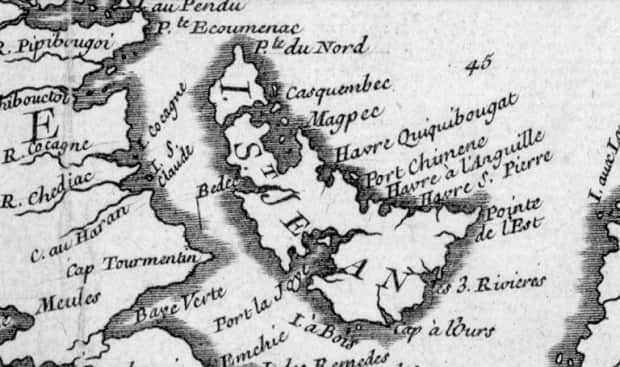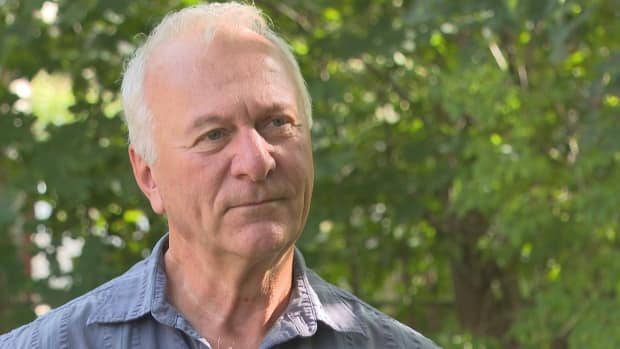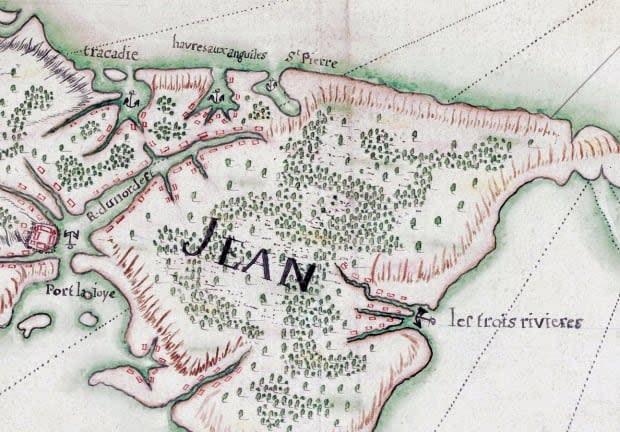The history of the P.E.I. harbour at the centre of a name-change push

Katewpijk. In Mi'kmaw, it translates as "eel trap place."
Chances are, most Islanders couldn't point to it on a map. That's because today, the name on the map is very different.
"In a woke society, it's kind of amazing that there's even a conversation that isn't 100-per-cent supportive of changing the derogatory terms such as Savage Harbour," said Roddy Gould Jr., chief of Abegweit First Nation in central Prince Edward Island.
As Canadians continue to come to terms with the legacy of colonialism, some place names are being re-examined through a new lens.
In the case of this P.E.I. harbour, the English language history is only a few hundred years old.

Before that, the place had French names — either Havre à l'Anguille or Havre aux Sauvages — during the Island's Acadian regime.
But long before that, for thousands of years it was a place where the Mi'kmaq fished eels.

Chief Gould said he was taught that history by his father and elders in the community.
Last month, he publicly requested the province change the name of the community, which is close to the Scotchfort reserve in eastern Queens County.
"This is something that we historically knew was embarrassing," said Gould.
"We thought that it was always an insult."
I understand that there would be interest in changing the name because really, in English, it doesn't convey a good feeling. — Georges Arsenault
P.E.I. historian Reg Porter has spent decades studying maps of the province.
When the Acadian settlers first arrived in the 1720s, Porter said, the Mi'kmaw name of Katewpijk (ga-DOH-bihjk) was recorded on several maps, using various spellings.
"It was always a Mi'kmaw place name. It was a tremendously important harbour on a scale which they would use for fishing," said Porter.

That name was picked up by the Acadians as well. The name Havre à l'Anguille, or Eel Harbour, is recorded on at least one map, from 1744.
Then, toward the end of the French regime, just a few years before the deportation of the Acadians from Isle Saint-Jean in 1758, a different name appeared: Havre aux Sauvages.
That name was used by a French cartographer and also used in one French census.
'Doesn't convey a good feeling'
P.E.I. Acadian historian Georges Arsenault translates Havre aux Sauvages as Indian Harbour.
"In French the word sauvage is not as pejorative as in English. For instance, you have wildflowers, which it will say fleurs sauvages," he said.
"The name was translated into English as 'Savage Harbour', which doesn't really convey the same feeling as in French … I understand that there would be interest in changing the name because really, in English, it doesn't convey a good feeling."

Gould said he respects the argument that the Acadian version of the name came from a non-aggressive place.
"But it doesn't change the fact of how the word is determined today," he said.
"It doesn't change the fact of how Sir John A. Macdonald addressed the House of Commons and making reference to us First Nations people as 'savages'."
Place names changed before
Other place names on P.E.I. have been changed before, including some changes due to derogatory terms.
In the early 1990s, a place near Stratford called Squaw Point was changed to Alexandra Point.
Arsenault also pointed out that some French communities on P.E.I. were given English names when post offices first opened.
That includes the community of Abram-Village in the Evangeline region.
Arsenault said originally it had the French name Village des Abram, but when the post office was opened at the end of the 19th century, it was given the name Abram's Village.
"And then at one point they started pronouncing the name in French, Abram Village. So in the 1970s, we started writing Abram-Village, without the 's' at Abram's and putting the hyphen like we do when we hyphenate place names," he said.
"Changing a name can be tricky because, you know, you have to have the support of the people of the community, which is not always easy."
Historian Reg Porter said place names around the world are constantly evolving.
"They are probably going to start evolving at a much more rapid rate, now that Indigenous people everywhere want to reclaim the identity which was originally theirs, and which was taken over or even stolen by the European colonists," said Porter.

